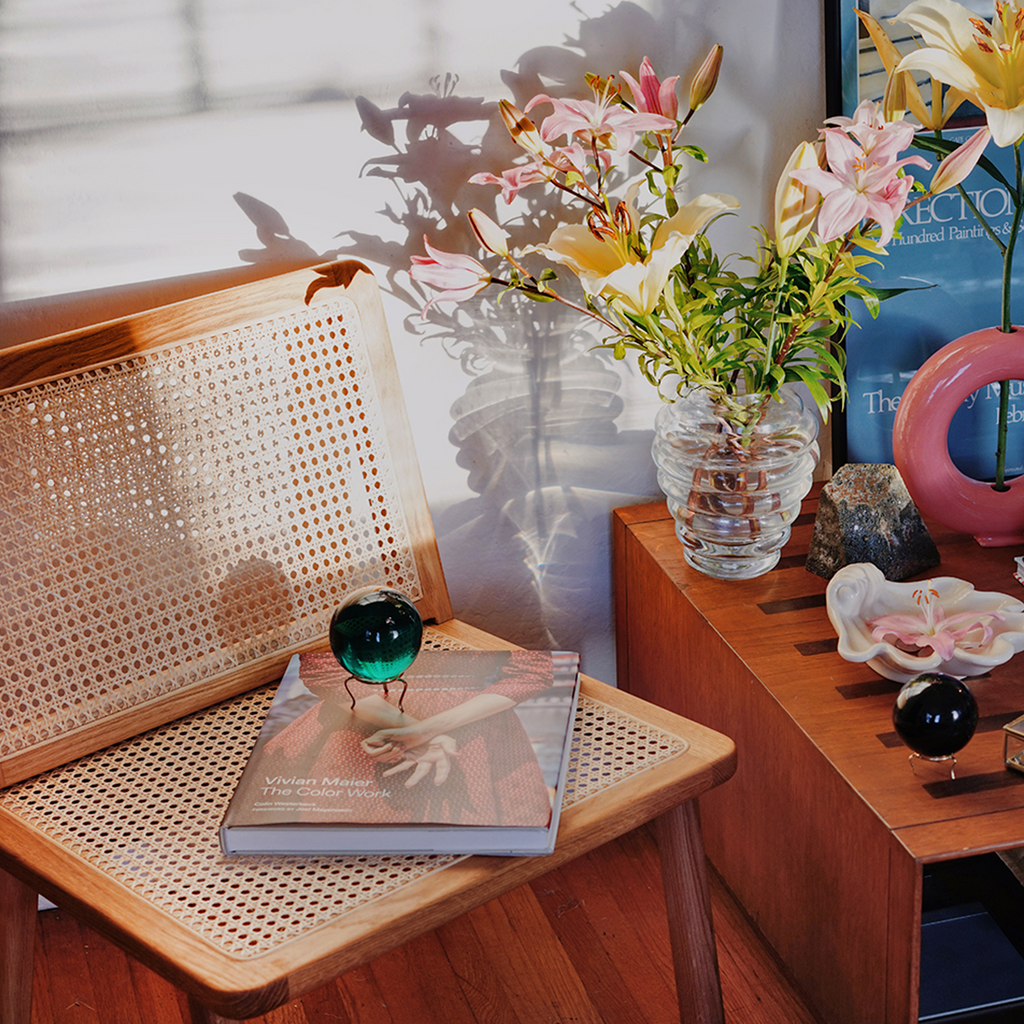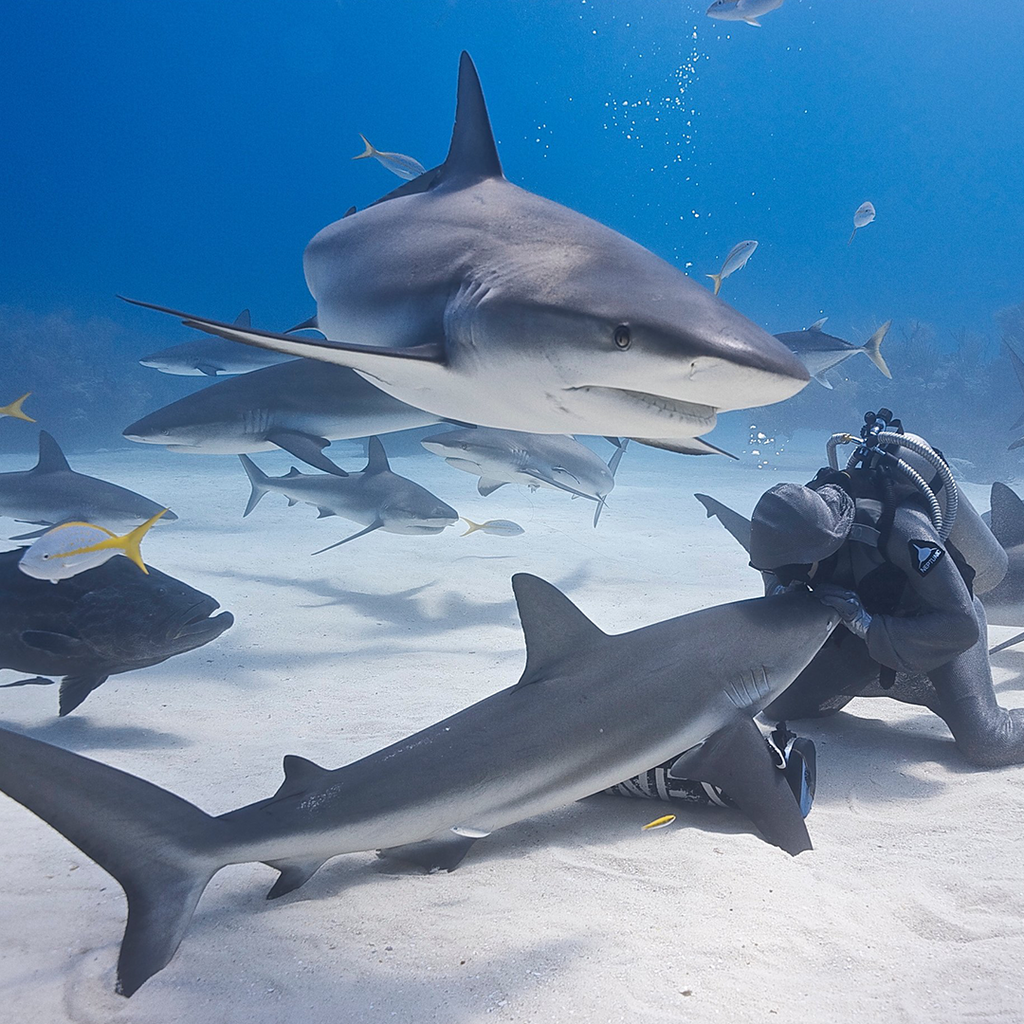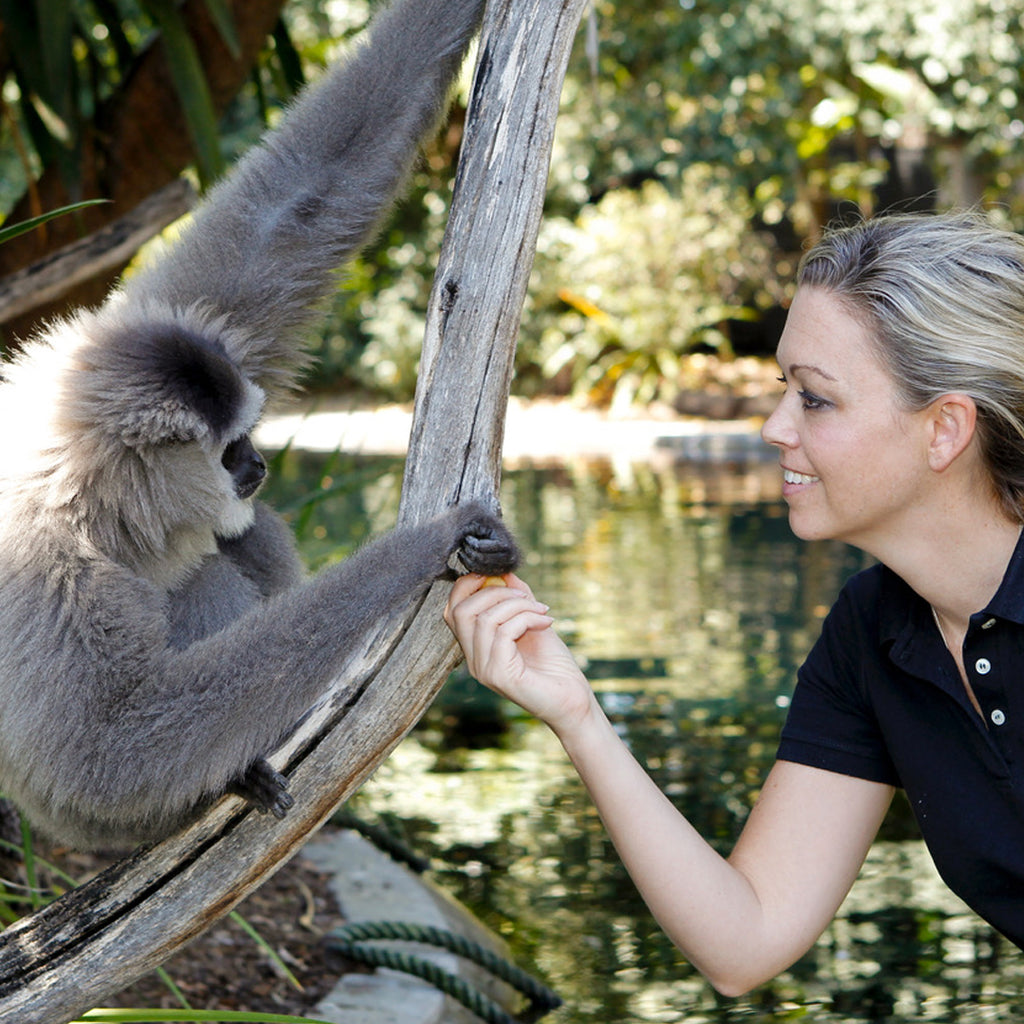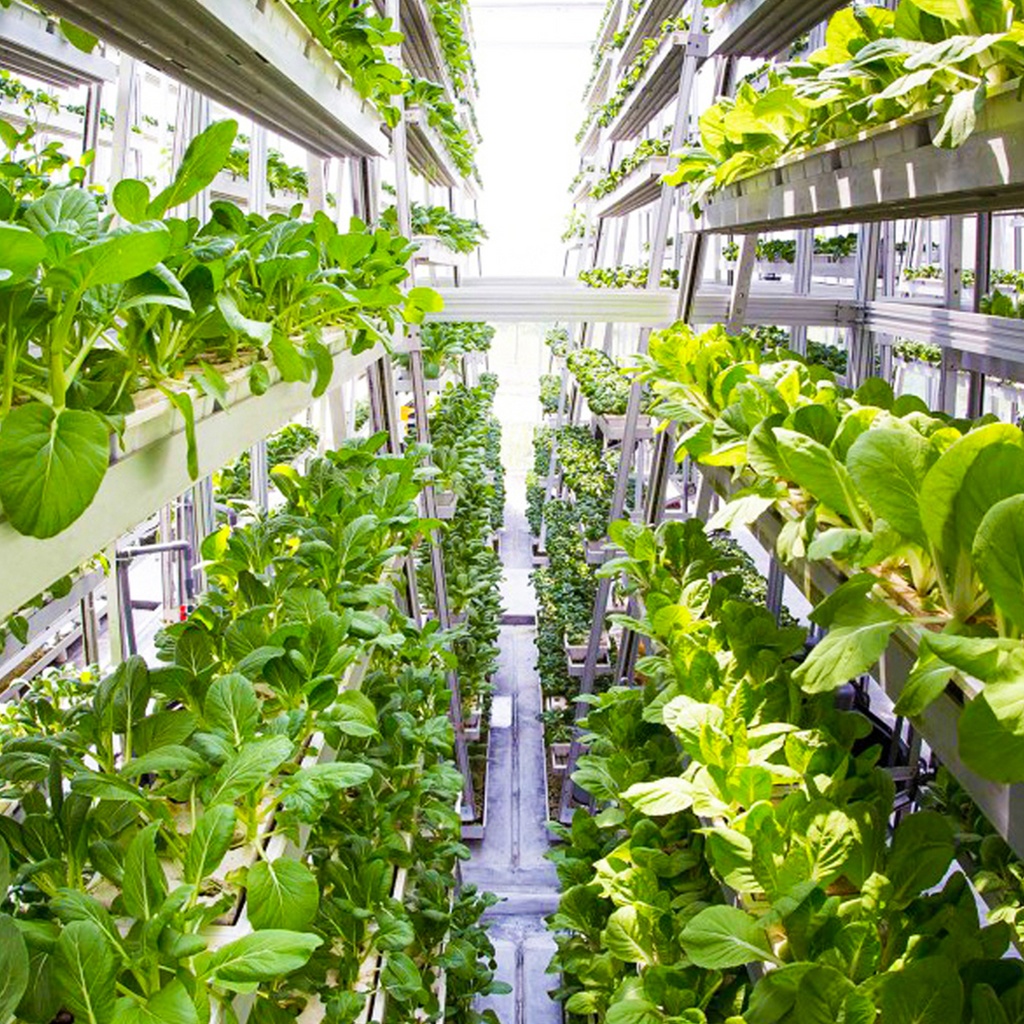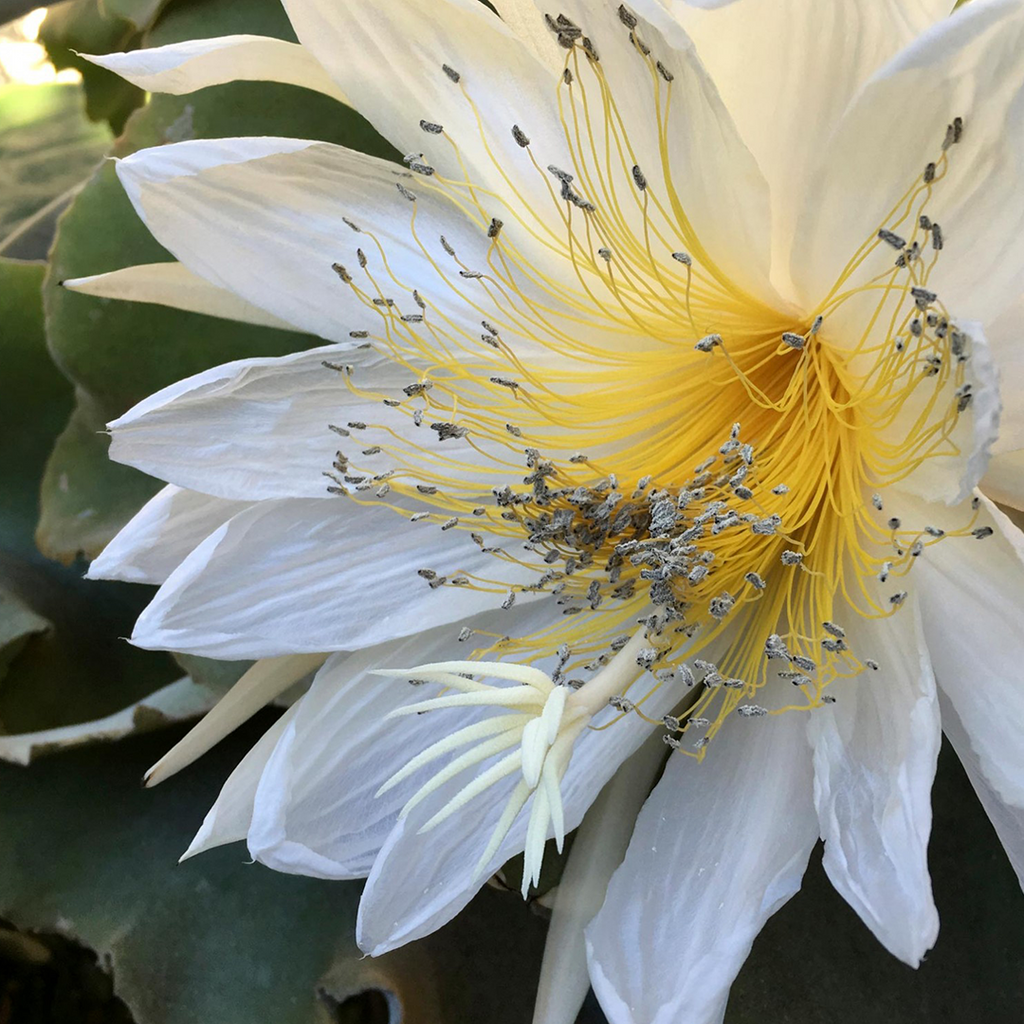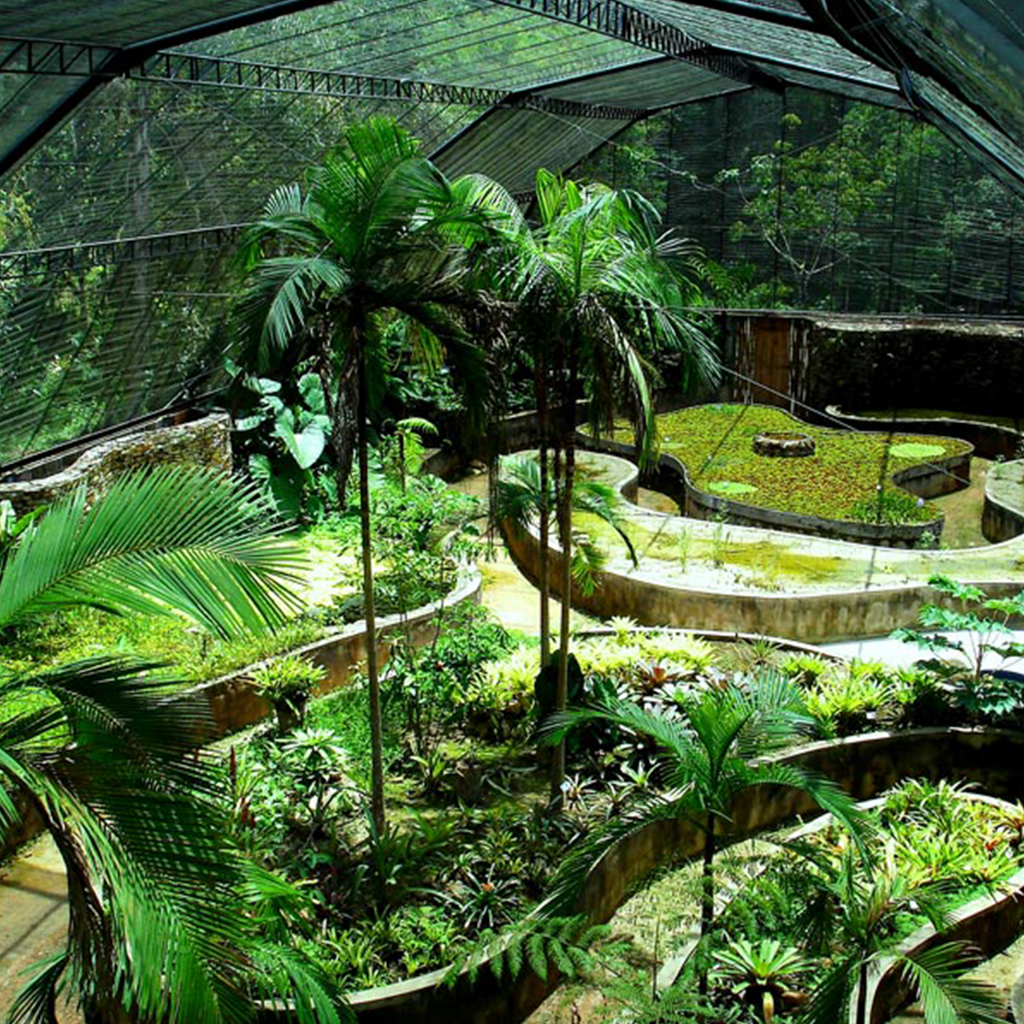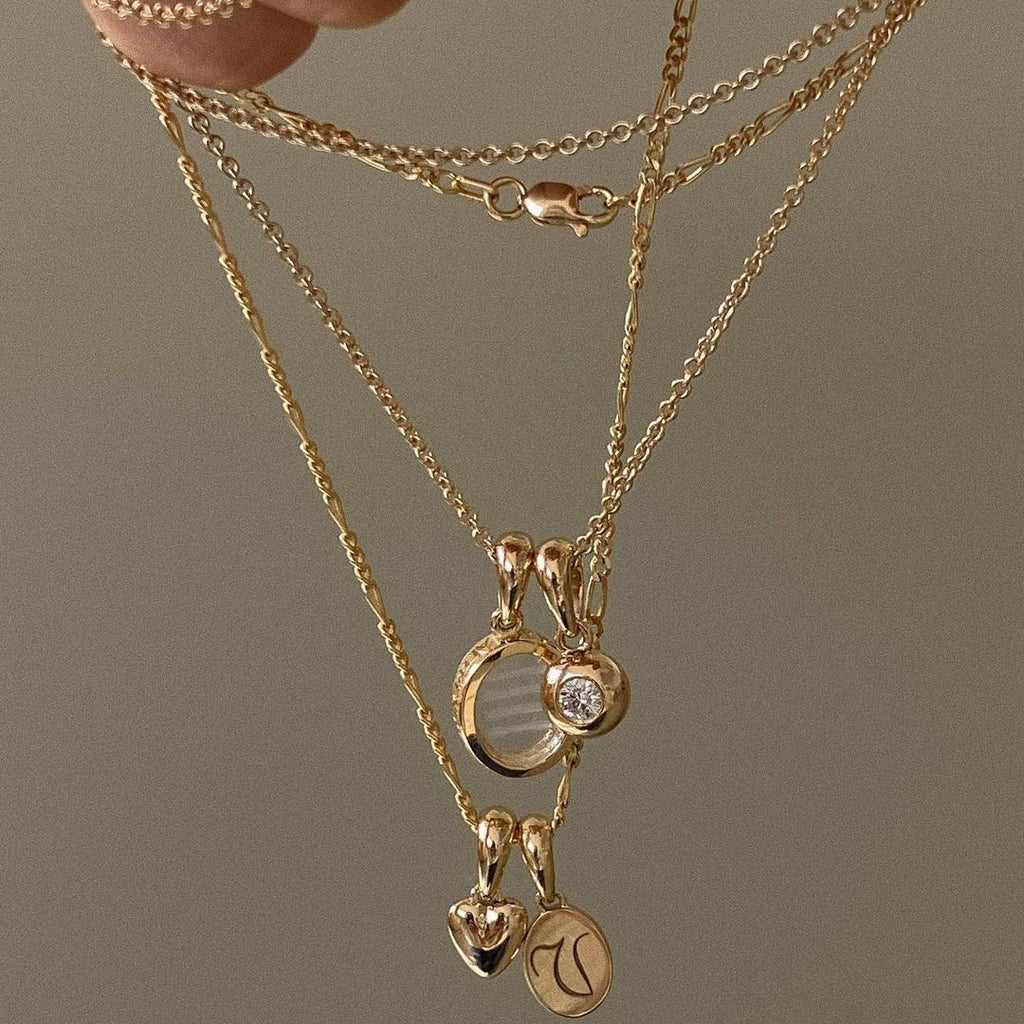Misool resort – travel with a good conscience
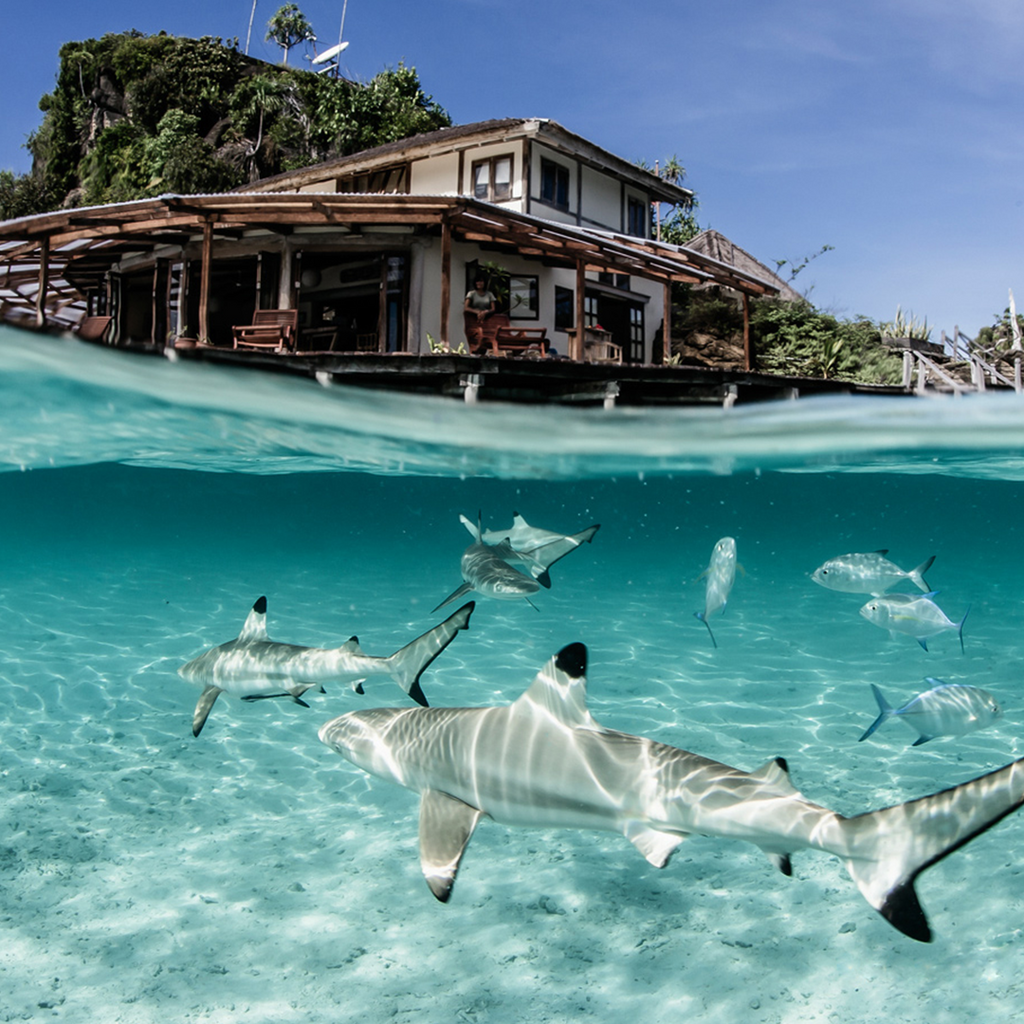
We met Marit Miners, co-founder of Misool Eco Resort.
When we first stumbled upon images from Misool we were just wowing and gasping over how beautiful it was and then when we realized the vastness of all the things they do; from protecting the environment to schools for locals, we got goosebumps, it really touched us deeply and made us very happy.
When reading about all work you do and the care for not only the sharks and the protection of 300.000 acres of the worlds richest reefs through Misool Foundation but also for all the issues above water, we are enormously impressed; the care of your staff, the education for children in your area, the eco-friendly buildings, the community recycling project; What drives you?
"I have always been lover of nature. A defining moment for me was when I vowed to stop complaining about the destruction of the earth until I was ready to take some sort of action.
Shortly thereafter, I met my future husband and business partner, Andrew. We were diving in Raja Ampat and visited the beach which would later become the site of our resort, Misool. At that time in 2005, the beach was the site of a shark finning camp. Itinerant fisherman were cutting fins from live sharks to support the shark fin soup trade in China and South East Asia. All 14 species of shark targeted for the shark fin soup trade are critically endangered, and nobody really knows what happens to the rest of the ecosystem when you categorically exterminate the apex predators.
This was the moment that catapulted me into action. Shortly thereafter, we leased 300,000 acres (1220 sq km) of sea as well as the island which would later become home to our our resort, Misool. We created a strict No-Take Zone, where all fishing is prohibited (and that includes us). The area is patrolled by a team of 15 full-time Rangers. We now have expanded the operation to include Marine Police, radar surveillance, and drone technology. The results have been astonishing - fish biomass increased by an average of 250% over a 6 year period, and on some sites more than 600%. Shark populations inside our No-Take Zone are 25 times higher than just outside."
 Photo: Misool/Taro Smith
Photo: Misool/Taro Smith
Where did you grow up?
"I was born in the Swedish Arctic, and we moved to the US when I was a toddler. I grew up in a family of nature lovers, with a Swedish mother and a father from Brooklyn. My best childhood memories are of gathering mushrooms, stalking wild blueberries, fishing for trout, and tracking pheasants with hunting dogs. I am immensely grateful for those experiences, and of course they are a big part of the person I am now.
I remember sometime in the early 90’s my father presented me with a rather complex calculation of how much CO2 I was creating by leaving the lights on in my bedroom, and by spending longer than 5 minutes in the shower. This was several decades before considering your carbon footprint was trending! It was a simple and straightforward way to help me understand that I need to take responsibility for my own actions and impact on the world."
 Photo: Misool/Jürgen Freund
Photo: Misool/Jürgen Freund
Tell us more about how Misool resort started.
"I learned to dive in Thailand in 2000. It was a life-changing moment. I loved the feeling of being a visitor to another realm, one which has evolved under entirely different physical conditions. Apart from our brief time in utero, this is our only opportunity to experience weightlessness. It’s also one of the few times we turn inward and take the time to appreciate nature, beauty, form, color, and biomechanics perfected by millions of years of evolution. It’s a humbling experience to struggle into a wetsuit and encumber yourself with 30 kilos of ungainly equipment. Once you’re in the water, you’re exhaling outrageously noisy bubbles and finning madly to move your land-lubbing body through a current, trying desperately not to run out of air. All this so you can admire a sublimely elegant shark glide past with a barely perceptible flick of its tail.
When Andrew and I met in 2005, he had already been sailing and diving in the Misool and Raja Ampat area for quite some time. I joined him on a dive trip there, and that’s when we first visited the island which would later become home to our resort. We were determined to preserve what has since been shown to be the world’s richest reefs. Andrew sought permission from the local clan’s elders to replace theshark finning camp with a conservation centre and to create a private marine reserve patrolled by former fishermen.
With the elders’ blessings and the backing of a handful of supporters, we began construction alongside dozens of workers recruited from as near as the village and as far away as Java, Germany, and the UK. We quickly realized that we were going to need a funding vehicle to support all the conservation work we wanted to do, and that’s how we ended up with a resort! In 2008, after two and a half very long years of sleeping underneath plastic tarps, subsisting on soggy rice and old eggs, and periodically breaking out in boils from malnutrition, we were done. We built the entire resort out of reclaimed wood which we milled ourselves in our own sawmill. Misool opened its doors to its first guests in October 2008.
Our mission was and always will be to protect the world’s richest reefs. We also wanted to prove to a wider audience that private enterprise and conservation can be mutually beneficial. We strongly believe that nature is our business’s most valuable asset. In 2011, we formalized our conservation work into Misool Foundation, a charitable organization registered in Indonesian. The resort now supports the foundation in number of ways, including donating 50 USD for each guest who stays with us. ”
 Photo: Misool/Shawn Heinrichs
Photo: Misool/Shawn Heinrichs
What are your thoughts on globalization and the fact that people are flying all over the world to enjoy a vacation?
"Thanks for asking that question - it’s a sensitive one but an important one. We need to be aware of and take responsibility for our actions. I think we also need to be quite pragmatic in how we assess all the different factors. Without our guests visiting us, Misool’s ecosystem would have long-since collapsed under the pressure of shark finning and dynamite fishing. This is not a loss that is recoverable. And the effect extends well beyond Misool. It has been established that coral polyps from our region wash westwards and may in fact repopulate the entire Coral Triangle. This is especially valuable since corals from our region have been shown to be exceptionally resistant to temperature fluctuations.
Consumers have a powerful role in supporting conservation work. Supporting operators who are actively engaged in conservation work is immensely important. That being said, we must all work to minimize our footprint. We are now working on a carbon offsetting program as well as a carbon insetting program, which would more directly support carbon negative goals in our local area."
What do the locals think about you and the resort, are they happy you are there?
”The local people are our long-term partners, and every business decision is considered from the perspective of the community. Being a good neighbor is key to the long-term sustainability of our enterprise. We employ 160 people, and most of those are locals. That’s 160 people who are supporting themselves and often extended families in a sustainable manner, one that’s entirely decoupled from the extraction of diminishing resources. Our sister charity, Misool Foundation, also supports the local community. Apart from the benefits of higher catch due to spillover effect from our No-Take Zone, we also have built a Kindergarten in nearby village. We’ve started a community recycling project which processes 2 tons of rubbish each day - that means we’re intercepting about 700 tons of ocean-bound plastics each year. We’ve also just been given a grant to start two cooperatives in the local village. One will employ 32 former fishermen in a aquaculture project, and the other will support women processing raw coconut oil into export-quality soap.”

Are you a vegetarian or vegan? If so why?
"I grew up in a family of hunters, so there never was any illusion about what meat is or where it comes from. When I was 16, I spent a summer away from my family and I cooked for myself for the first time. I realized that touching raw meat was distasteful to me, which prompted a lot of ethical questions for me. I also started to get curious about where meat comes from on a industrial scale, and the answers horrified me. My thoughts about vegetarianism and veganism have evolved since then, but my overall feeling is that a plant-based diet is better for me, better for the planet, and better for animals. I’m a great lover of food and I’m incredibly lucky to have access to so many different sorts of food. So of course I choose the food which nurtures me and my family while causing the least harm."
What do you think about climate change, have you seen any changes with your own eyes?
"Climate change keeps me up at night. I worry for the world my son will inherit, and I worry about how I will answer when he asks me why I didn’t do more."
 Photo: Misool / Tobias Zimmer
Photo: Misool / Tobias Zimmer

